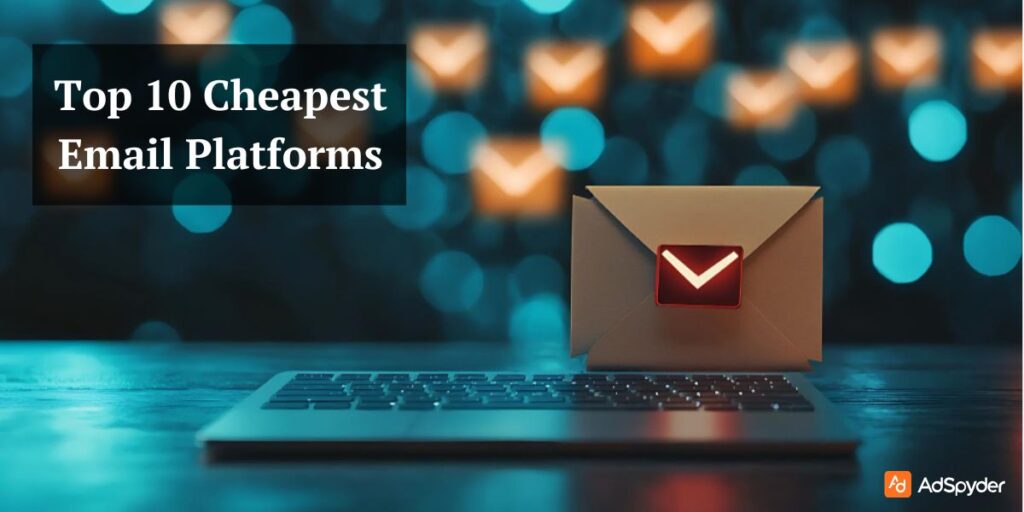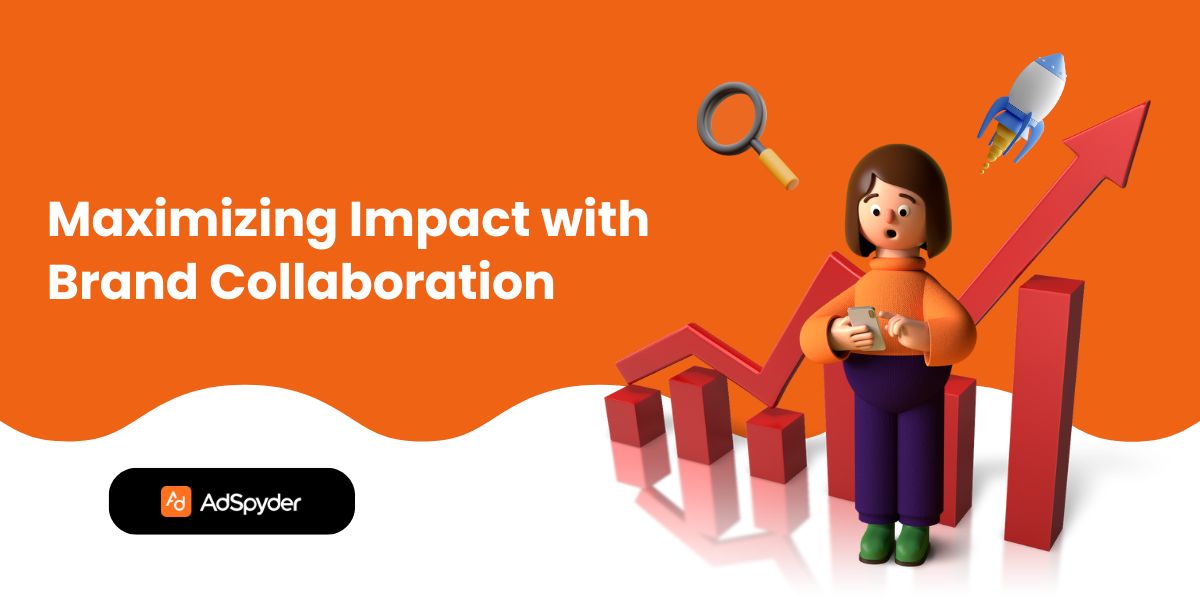In today’s digital age, email marketing remains one of the most effective ways to interact with customers and nurture leads. Whether you are a small business, freelancer, or startup, the right find would be an inexpensive email platform providing a favorable combination of features affordability, and that will be open for the success of the venture. Today, we are going to discuss the top 10 email platforms that were the cheapest and tell how much each one would cost, the features offered, and whether those platforms are good for any specific business type.
Ready to Elevate your Marketing Strategy?
Why Choose Cheapest Email Platforms?
Cheapest email platforms allow companies of all sizes to engage their audience in ways that fit into a budget. Whether you are pushing for campaigns on promotions, newsletters, or offers, these platforms offer essential features like automation, segmentation, and analytics to steer clear and optimize the email marketing strategy.
Affordable doesn’t always mean cheaper. However, there are some verticals where budget-friendly platforms are equipped with some great tools that could perform very well for small to mid-sized campaigns- it’s just a matter of selecting the one that suits your needs and grows with your business.
Benefits of Using Low-Cost Email Platforms
| Benefit | Description |
| Affordability | Low-cost email platforms offer essential email marketing features at budget-friendly prices. |
| Ease of Use | Most affordable platforms come with intuitive interfaces and drag-and-drop email editors. |
| Essential Features Included | Despite being low-cost, these platforms offer key tools like templates, automation, and analytics. |
| Scalability | Many low-cost tools provide upgrade options as businesses grow and require more advanced features. |
| Free Trials and Plans | Many affordable platforms offer free plans or trials to test features before committing. |
| Improved ROI | Affordable platforms help businesses achieve better returns by reducing marketing costs. |
| Customization Options | Includes customizable templates and segmentation tools to tailor emails for specific audiences. |
| Mobile Optimization | Many low-cost tools provide mobile-friendly designs to ensure emails look great on all devices. |
| Automation Capabilities | Automates repetitive tasks like welcome emails, follow-ups, and cart recovery workflows. |
| Integration with Other Tools | Affordable platforms often integrate with CRMs, eCommerce systems, and analytics tools. |
| Support for Small Campaigns | Ideal for businesses running smaller campaigns or targeting niche audiences. |
| Access to Analytics | Provides basic reporting features to track metrics like open rates, CTR, and conversions. |
| Fast Setup | Affordable platforms are typically easy to set up and start using within minutes. |
Key Factors to Consider in a Cheapest Email Platforms
There are many ways to choose and identify a cost-effective email marketing platform, and understanding these factors before proceeding to the top platforms is vital:
- Pricing structure: Know whether there is a free plan or a free trial period and whether such a plan is scalable in accordance with your list size.
- Features: Must-have features offered by the provider within budgets include automation, segmentation, and personalization.
- Ease of Use: It is safe to say that the easier the platform options are to use, the better its results.
- Customer Support: Basically, you will want a platform that offers solid support, especially if you are new to email marketing.
- Integration: Integration with other tools you may be using, such as CRM or something similar.
- Deliverability: Deliverability allows for high rates, where your emails land directly in the customer inbox without restriction by spam filters.
Check Out: Top 10 Shopify Email Marketing Tools for 2025
How to Choose the Right Email Platform for Your Business
Selecting an appropriate email platform that caters to such a wide spectrum of objectives withers any attempt at one-size-fits-all. While some platforms offer an advanced degree of automation, others simplify the process of use with unparalleled customization. And some touch points to keep in mind when testing out new software include:
- Campaign Goals: What does your campaign want to achieve? Is it lead-generation-oriented, or do we wish to shift some products, or is it simply for customer engagement?
- Consideration of List Size: Some platforms have pricing tiers depending on the number of subscribers. Ask yourself how big you think the email list will grow.
- Integration: Ensure proper integration with any existing systems your organization runs: CRM systems, e-commerce systems, or social media channels should all be considered.
- User experience: For those new to the world of email marketing, you should use an easy-to-use platform with excellent support because the benefits you derive from it can determine your success or failure.
Top 10 Cheapest Email Platforms
1. Mailer Lite

- Free Plan: Yes (up to 1,000 subscribers and 12,000 emails per month)
- Pricing: Paid plans start at $10/month.
- Key Features: Automation, landing pages, drag-and-drop editor, segmentation, A/B testing.
- Best For Bloggers, small businesses, and freelancers.
MailerLite’s simplicity and affordability are the most powerful features that cater to beginner-level marketers and some of them for more seasoned marketers, balancing great features offered at a different level: Automation, landing-page creation, and base-level segmentation at the free tier of service make this a small-business-friendly and content-creator-friendly platform.
It offers full-blown automated workflows, custom HTML emails, and live customer support on the paid version. The MailerLite interface is an effortless undertaking; despite not giving you headaches, it will afford sufficient functionality to satisfy even the most experienced marketers.
2. Sendinblue

- Free Plan: Yes (up to 300 emails/day, unlimited contacts)
- Pricing: Paid plans start at $25/month.
- Key Features: Email automation, SMS marketing, drag-and-drop editor, email analytics.
- Best For: Small businesses, e-commerce stores, and marketers on a budget.
Incorporating email and SMS marketing, Sendinblue provides a holistic approach to multi-channel marketing. Free-contact plans, which limit the number of emails one can send per day, are helpful for businesses wanting to retain flexibility while scaling up.
Extracting various SMS features, it has a highly sought-after advantage of powerful marketing automation for triggering emails and customer behaviors. Paid plans unlock up to more emails a month while providing further advanced features for landing pages, A/B testing, and reporting.
See It Here: Top 10 Competitor Analysis Tools for Digital Marketers
3. Moosend

- Free Plan: Yes (up to 1,000 subscribers)
- Pricing: Paid plans start at $9/month.
- Key Features: Automation, drag-and-drop editor, segmentation, reporting.
- Best For: Freelancers, small businesses, and agencies.
With an attractive pricing structure and a broad array of features, Moosend offers a uniquely low starting price. For freelancers or small businesses with moderately sized mailing lists, its free plan with up to 1,000 subscribers and unlimited emails provides a fine option. Its intuitive interface makes it simple to design emails and set up automation workflows.
Besides its flexible pricing scheme and transparent cost structure that allows a business to build a subscriber list easily without the fear of sudden cost surges, Moosend is also setting itself apart.
4. Mailchimp

- Free Plan: Yes (up to 500 subscribers and 3,500 emails per month)
- Pricing: Paid plans start at $9.99/month.
- Key Features: Automation, audience segmentation, email templates, analytics.
- Best For Beginners, small businesses, and freelancers.
Mailchimp is the quintessential and one of the most widely used email marketing service providers, offering a free plan that is suitable for beginners. With features like pre-made templates, basic automation, and audience segmentation, Mailchimp gives solid support to marketers who are stepping into the profession.
The platform’s interface is user-friendly and equipped with a great many tutorial sessions that guide non-tech-savvy users through the campaigning process. The more it evolves, the more features it gets unlocked for segmented customers, multi-step automation, and user analytics.
5. Benchmark Email

- Free Plan: Yes (up to 3,500 emails per month)
- Pricing: Paid plans start at $13/month.
- Key Features: Drag-and-drop editor, email templates, segmentation, A/B testing, mobile optimization.
- Best For: Small businesses, nonprofits, freelancers.
Benchmark Email is one easy-to-use platform with fantastic customization options, even on its free plan. This platform with a drag-and-drop editor is quite user-friendly and is capable of receiving the usual attire work for mobile devices.
Benchmark Email has mostly taken the spotlight for customer support and flexibility; great tools such as A/B testing and segmentation are available even for its cheap paid plans. It is an excellent fit for small businesses and non-profit organizations looking to create and run their email campaigns on a budget.
Check Now: Top 10 Lead Generation Tools
6. Mailjet

- Free Plan: Yes (6,000 emails per month, unlimited contacts)
- Pricing: Paid plans start at $15/month.
- Key Features: Collaboration tools, email automation, segmentation, transactional emails, analytics.
- Best For Businesses with larger teams of e-commerce stores.
AMailjet free plan allows users to send 200 emails daily and unlimited contact. This is a valid option for business groups that have a large audience size but are on a small budget. Providers cannot consider excellent collaboration tools that allow multiple team members to work on campaigns in one place.
Further paid plans subsequently offer advanced segmentation, A/B testing, and priority customer support for a very reasonable price, which makes it an appropriate choice for growing businesses and eCommerce stores needing scalability.
7. AWeber
- Free Plan: Yes (up to 500 subscribers and 3,000 emails per month)
- Pricing: Paid plans start at $19.99/month.
- Key Features: Email automation, drag-and-drop editor, landing page builder, segmentation, and reporting.
- Best For: Small businesses, freelancers, entrepreneurs.
AWeber has been one of the original providers of email marketing software, known for reliable service and excellent customer care. Its free plan, whereby the user can expect to send as many as 3,000 emails each month, provides an excellent opportunity for a small company, or indeed, a one-man band just starting. AWeber is very user-friendly. This makes the process of drag-and-drop email editor, landing page builder, and list segmentation part and parcel, even on its free plan.
Paid-for plans offer far more sophisticated automation, priority support, and detailed analytics, best suited to growing businesses that need some detailed reporting and scalability.
8. ConvertKit

- Free Plan: Yes (up to 1,000 subscribers)
- Pricing: Paid plans start at $9/month.
- Key Features: Email automation, segmentation, email templates, landing page builder, reporting.
- Best For: Bloggers, content creators, small businesses.
ConvertKit, being very popular amongst bloggers and content creators, is very simple and focuses on content-driven campaigns. The free plan is great for building up to 1,000 subscribers while still able to enjoy the basics of email marketing, including automation and landing pages.
But what actually makes ConvertKit stand out is the ease with which it creates personalized, automated workflows to trigger email actions based on user behavior of using ConvertKit for targeted engagement with your audience. Paid plans on ConvertKit build on these and offer further automation tools, compatibility with several other apps, and detailed tracking of your subscribers.
9. Zoho Campaigns

- Free Plan: Yes (up to 6,000 emails per month for 2,000 subscribers)
- Pricing: Paid plans start at $4/month.
- Key Features: Email templates, automation, segmentation, A/B testing, integration with Zoho CRM.
- Best For: Small businesses, e-commerce stores, businesses already using Zoho products.
Zoho Campaigns falls under the most affordable solutions for email marketing available on the market, hence becoming conducive for small businesses with limited budgets. It allows sending a total of 6,000 e-mails each month for free. This also includes automation and e-mail templates.
If you are considering Zoho Campaigns, it is a rather wise option for any business that already subscribes to Zoho’s other offerings, like Zoho CRM, because all tools will easily integrate with one another. Plus, starting at $4 per month, their plans are ridiculously affordable, offering advanced features such as custom reporting, designing, and segmentation, among others.
10. Mailigen

- Free Plan: No.
- Pricing: Paid plans start at $10/month.
- Key Features: Email automation, SMS marketing, drag-and-drop editor, integration with CRM, and analytics.
- Best For: Small businesses, e-commerce stores, and agencies.
Mailigen is an all-in-one solution, combining e-mail and SMS marketing, and is aimed at companies using these channels of communication in different ways to reach their target audiences. There is no free plan, but a most affordable option starting from $10 a month, useful for smaller businesses requiring both features.
Mailigen comes with an intuitive interface, amazing analytics, and reporting tools. With its powerful automation, it allows businesses to personalize email sequences based on the behavior of the customer. So, it is well suited for e-commerce stores looking to nurture their leads and push conversion.
Must See: Top 10 Tools for Creating Engaging Ad Creative
Comparison Table of Features and Pricing
| Platform | Free Plan | Paid Plan Starts | Subscribers (Free) | Key Features |
| MailerLite | Yes | $10/month | 1,000 | Automation, segmentation, Drag – and-Drop editor |
| Sendinblue | Yes | $25/month | Unlimited contacts | Automate, SMS marketing, and email analysis |
| Moosend | Yes | $9/month | 1,000 | Automation, segmentation, email templates |
| Mailchimp | Yes | $9.99/month | 500 | Automation, categorization, templates for email shots |
| Benchmark Email | Yes | $13/month | 3,500 emails/month | A/B testing, segmentation, templates of emails |
| Mailjet | Yes | $15/month | Unlimited contacts | An efficient process of automation, segmentation and collaboration tools. |
| AWeber | Yes | $19.99/month | 500 | Automation, segmentation and landing pages. |
| ConvertKit | Yes | $9/month | 1,000 | Automation as a method, technique of segmentation, creation of landing pages |
| Zoho Campaigns | Yes | $4/month | 2,000 | Automation process, segmentation, integration with a CRM |
| Mailigen | No | $10/month | N/A | Automation, mass marketing, CRM implementation |
How to Choose the Cheapest Email Platforms for Your Needs
Email platform choice will depend more on your business goals and the functionalities you require. Here are some key points that should help you in making the best of the choices:
- Budget: All these platforms have free plans, yet each has different offerings between its free options or lower-tier paid options. Consider the size of your email list and what your willingness is to spend on marketing.
- Automation Needs: If you need sophisticated automation to send triggered emails based on user behavior, then the ConvertKit, MailerLite, and Mailigen platforms would be better for you.
- Audience Size: If your subscriber list is huge, then platforms like Sendinblue or Mailjet are suitable because they provide unlimited contacts even on their free plan.
- Ease of Use: For starters, Mailchimp or Moosend provides easy-to-use interfaces as well as an excellent support system for people to get started with email campaigns.
- Multi-Channel Marketing: If one wants to integrate email marketing with SMS marketing, too, then Sendinblue or Mailigen may be of great help.
- Integration: If the chosen email platform is already using other tools like CRM or e-commerce platforms, make sure they are integrated. Integration is easy with Zoho Campaigns and Mailjet.
Final Recommendations
For those who are just getting started or have limited funds, MailerLite and Moosend provide the cheapest plans. This is without missing any features necessary for effective email marketing. Mailchimp is also a reliable starting point. It’s easy to use and has plenty of tutorials available.
For companies looking to merge email and SMS marketing, Sendinblue and Mailigen could be a multi-channel marketing approach at competitive prices. However, Zoho Campaigns are particularly great for businesses already using Zoho’s suite of tools, offering great integration and affordable pricing.
Regardless of the platform, the magic happens when you optimize your campaigns. It is with the right balance between automation, segmentation, and performance tracking. Always begin with a clear understanding of marketing goals. Be sure to choose the right scaling platform as the business grows.
Conclusion For Cheapest Email Platforms
Choosing the Cheapest email platforms does not have to break the bank. There are plenty of reasonably priced options with comprehensive sets of features that can help you run successful email campaigns. Knowing your specific needs, list size, and budgetis important. It will allow you to pick a platform that fits within the parameters you’re working with. This also provides the tools you need to optimize your marketing efforts.
Each of the ten forums discussed has its own strengths. What’s important is to choose one that matches your business goals. Whether it’s lead nurturing, raising more conversions, or just bettering the conversion rates. Always take advantage of free trials or plans to test the platform before committing to a paid plan.




